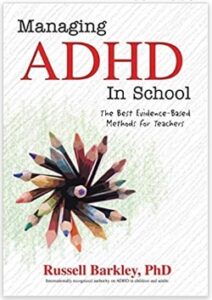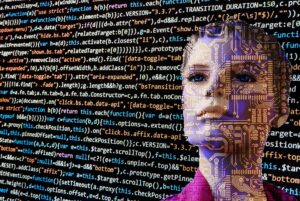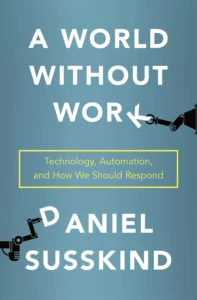The futurist and former executive editor at Wired, Kevin Kelly, provides stellar insight into the future of our digital world in his book, The Inevitable: Understanding the 12 Technological Forces That Will Shape Our Future . In order to help with my own understanding of these fascinating trends that Kevin Kelly has covered, I’ve made notes on some key points, which I believe are important factors for us all to consider as we educate today’s students for tomorrow’s world:
BECOMING
Our greatest invention in the last 200 years has been the scientific process itself because it has enabled us to create thousands of other amazing things that we could never have discovered any other way.
Existence, it seems, is chiefly maintenance. For example, keeping a website afloat is like keeping a yacht afloat.
Continual upgrades are so critical for technological systems that they are now automatic for the major personal computer operating systems and some software apps. Technological life in the future will be a series of endless upgrades.
Only 40 per cent of the web is commercially manufactured. The rest is fuelled by duty and passion.
Half of all web pages in the world today are hosted on more than 35 million servers running free Apache software, which is open source, community created.
The web will more and more resemble a presence that you relate to rather than a place. By 2050 we’ll come to think of the web as an ever-present type of conversation.
There has never been a better day in the whole history of the world to invent something.
FLOWING
The digital age can be seen to have developed in three stages:
The initial age of computing imitated the medium it replaced. Our screens had a “desktop” and “folders” and “files”. They were hierarchically ordered, like much of the industrial age that the computer was overthrowing.
The second stage overturned the office metaphor and brought us the organising principle of the web. The basic unit was no longer files but “pages”. Pages were not organised into folders, but were arranged into a networked web of both stored information and active knowledge.
Now we are transitioning to the third age of computation. Pages and browsers are far less important. Today the prime units are flows and streams. The cloud is the new organising metaphor for computers.
SCREENING
To everyone’s surprise, ultra thin screens and tablets have launched an epidemic of reading and writing that has continued to swell. The amount of time people spend reading has almost trebled since 1980. By 2015 more than 60 trillion pages have been added to the World Wide Web, and that total grows by several billion a day.
Screening, in which information is read on a screen, encourages rapid pattern making, associating one idea with another, equipping us to deal with the thousands of new thoughts expressed every day.
Propaganda is less effective in a world of screens, because while misinformation travels fast, corrections do too. Wikipedia works so well because it removes an error in a single click, making it easier to eliminate a falsehood than to post a falsehood in the first place.
In the goodness of time, each Wikipedia page will become saturated with blue links as every statement is cross-referenced. In the goodness of time, as all books become fully digital, every one of them will accumulate the equivalent of blue underlined passages as each literary reference is networked within that book to all other books.
Brewster Kahle, an archivist who is backing up the entire Internet, says that a universal library is now within reach in which all the world’s literature is accessible to all the people of the world. All the books within the books’ bibliographies will themselves be available, and so you can hop through the library in the same way we hop through web links, travelling from footnote to footnote until you reach the bottom of things. In this way, all the books the world will be knitted together into a single networked literature. A reader will be able to generate a social graph of an idea, or a timeline of a concept, or a networked map of influence for any notion in the library. We’ll come to understand that no work, no idea stands alone, but that all good, true and beautiful things are ecosystems of intertwined parts and related entities, past and present.
If you can truly incorporate all texts – past and present in all languages – on a particular subject, then you can have a clearer sense of what we as a civilisation do and don’t know.
As portable screens become more powerful, lighter and larger, they will be used to view more of the ‘inner world’. Hold an electronic tablet up as you walk along a street – or wear a pair of contact lenses – and it will show you an annotated overlay of the real street ahead: where the restrooms are, which stores sell your favourite items, where your friends are hanging out. In the next 30 years semitransparent eyeglasses will apply an information layer to reality. In this way, screens will enable us to “read” everything, not just text.
In the near future we will never be far from a screen from some sort. Screens will be the first place we’ll look for answers, for friends, for news, for meaning, for our sense of who we are and who we can be.
ACCESSING
A reporter for TechCrunch recently observed, “Uber, the world’s largest taxi company, owns no vehicles. Facebook, the world’s most popular media owner, creates no content. Alibaba, the world’s most valuable retailer, has no inventory. And Airbnb, the world’s largest accommodation provider, owns no real estate. Something interesting is happening.”
Possession is not as important as it once was. Accessing is more important than ever.
The trend in the past 30 years has been to make better stuff using fewer materials. That’s called dematerialisation. The total amount of material we use per GDP dollar is going down, which means we use less material for greater value. A central advantage of the cloud for example, is that the bigger it gets, the smaller and thinner our devices can be.
The switch from “ownership that you purchase” to “access that you subscribe to” overturns many conventions. Ownership is casual, fickle. If something better comes along, grab it. A subscription, on the other hand, gushes a never-ending stream of updates, issues and versions that force a constant interaction between the producer and consumer.
TVs, phones, and software as service are just the beginning. In the last few years we’ve gotten hotels as service (Airbnb), tools as service (TechShop), clothes as service (Nerd Block, Sparkbox). Just ahead are several hundred new startups trying to figure out how to do food as service (FaS).
Examples of new, digital business models…
Delivery: Let a network of freelancers deliver packages to homes (Uber for FedEx). Design: Let a crowd of designers submit designs, just pay the winner (CrowdSpring). Heath care: Coordinate sharing insulin pumps. Real estate: Rent your garage s storage space, or an unused cubicle as office space for a startup (WeWork).
For many of the things we will use in the upcoming world, short-term use will be the norm. As more items are invented and manufactured – as the total number of hours in the day to enjoy them remains fixed – we spend less time per item. In other words, the long-term trend in our modern lives is that most goods and services will be short-term use. Therefore most goods and services are candidates for rental and sharing. Sharing economy services such as Netflix and Spotify for example, move audiences away from owning anything.
On average, communication technology is biased toward moving everything to on demand. And on demand is biased toward access over ownership.
When everyone “owns” it, nobody owns it. That is often what we mean by public property or the commons. Just like with roads, the decentralised web/Internet is now the central public commons. The good of the web serves us as if we owned it, yet we need to do very little to maintain it.
If McLuhan is right that tools are extension of our selves – a wheel an extended leg, a camera an extended eye – then the cloud is our extended soul. Or, if you prefer, our extended self. In one sense, it is not an extended self we own, but one we have access to.
Collective action can create additional value that can only come from the group as a whole. For instance, a pile of tourist snapshots of the Eiffel Tower, each taken from a different angle by a different tourist at a different time, and each one heavily tagged, can be assembled (using software such as Microsoft’s Photosynth) into a stunning 3D holistic rendering of the whole structure that is far more complex and valuable than the individual shots.
Instead of money, the peer producers who create various products and services online gain credit, status, reputation, enjoyment, satisfaction, and experience.
The most common motivation for working without pay (according to a survey of 2,784 open source developers) was “to learn and develop new skills.”
The largest, fastest growing, most profitable companies in 2050 will be companies that will have figured out how to harness aspects of sharing that are invisible and unappreciated today. Anything that can be shared – thoughts, emotions, money, health, time – will be shared in the right conditions, with the right benefits.
FILTERING
It is 10 times easier today to make a simple video than 10 years ago.
We are still at the early stages in how and what we filter. These powerful computational technologies can be – and will be – applied to the Internet of everything.
Since it is the last scarcity, wherever attention flows, money will follow.
Our lives are already significantly more complex than even five years ago. We need to pay attention to far more sources in order to do our jobs, to learn, to parent, or even to be entertained. Our seemingly distracted state and our endless flitting from one thing to another is not a sign of disaster, but it is a necessary adaptation to this current environment. Google is not making us dumber. Rather we need to web surf to be agile, to remain alert to the next new thing. We therefore need a real-time system of filters upon filters in order to operate in the explosion of options we have created.
The only things that are increasing in cost while everything else heads to zero are human experiences – which cannot be copied. Everything else becomes commoditised and filterable. The value of experience is rising.
REMIXING
Growth comes from remixing.
Modern technologies are combinations of earlier primitive technologies that have been rearranged and remixed.
We live in a golden age of new mediums. In the last several decades hundreds of media genres have been born, removed out of old genres. Recombination is really the only source f innovation – and wealth.
Every creation that has any value will eventually be transformed – in some version – into something different.
The more powerful the invention or creation, the more likely and more important it is that it will be transformed by others.
In 30 years the most important cultural works and the most powerful mediums will be those that have been remixed the most.
INTERACTING
We are equipping our devices with senses – eyes, ears, motion – so that we can interact with them. They will not only know we are there, they will know who is there and whether that person is in a good mood. Of course, marketers would love to get hold of our quantified emotions, but this knowledge will serve us directly as well, enabling our devices to respond to us “with sensitivity” as we hope a good friend might.
TRACKING
We are opaque to ourselves and need all the help we can get to decipher who we are. One modern aid is self-measurement.
Macroscopic measurements can be inserted into watches, clothes, spectacles, or phones, or inexpensively dispersed in our rooms, cars and public spaces.
Anything that can be tracked is being tracked by someone somewhere.
The achievable dream in the near future is to use a very personal database of your body’s record (including your full sequence of genes) to construct personal treatments and personalised medicines.
The AI in research labs is already powerful enough to sift through billions of records and surface important, meaningful patterns.
The fastest-increasing quantity on this planet is the amount of information we are generating. It is (and has been) expanding faster than anything else we can measure over the scale of decades.
If today’s social media has taught us anything about ourselves as a species, it is that the human impulse to share overwhelms the human impulse for privacy. Vanity trumps privacy.
QUESTIONNING
From this new societal organisation, new behaviours emerge that were impossible at the lower level.
Most of what “everybody knows” about human beings has so far been based on the human individual. But there may be a million different ways to connect several billion people, and each way will reveal something new about us. Or each way may create something new. Either way, our humanity will shift.
BEGINNING
This is the time when inhabitants of this planet first linked themselves together into one very large thing.



